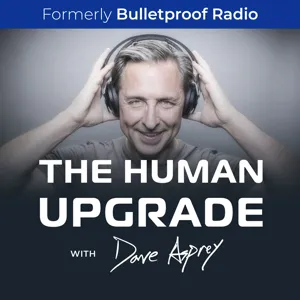In this episode of Bulletproof Radio, Dr. Kelly Brogan, a holistic women’s health psychiatrist, shows people that they don’t have to medicate their mental, emotional, and physical pain away—that the best way out is through. She explains what led her to stop prescribing medication to her own patients and helps people decode the myths and misconceptions of the current healthcare system so they can lead a healthy, vital life.
She’s board certified in psychiatry, psychosomatic medicine, and integrative holistic medicine and specializes in a root-cause resolution approach to psychiatric syndromes and symptoms.
Her new book—"Own Your Self: The Surprising Path Beyond Depression, Anxiety, and Fatigue to Reclaiming Your Authenticity, Vitality, and Freedom”— presents a radical alternative to psychotropic meds.
She explodes the mistaken belief that symptoms—from mood changes to irritability to fogginess and fatigue—are evidence that people are sick or broken. “I became interested in the role of belief,” Dr. Brogan says. “And how what's really happening when we're talking about the engagement of health practices is the exercising of a belief system. So, I started to study the anatomy of that—the placebo, nocebo effect, expectancy—and really what it is to inhabit a belief system.”
Dr. Brogan says our experiences aren’t problems or pathologies; they reflect what we need to accept, acknowledge and transform in order to truly become who we are. “Authenticity has become the most powerful form of social currency.”
Enjoy the show!
See Privacy Policy at https://art19.com/privacy and California Privacy Notice at https://art19.com/privacy#do-not-sell-my-info.





